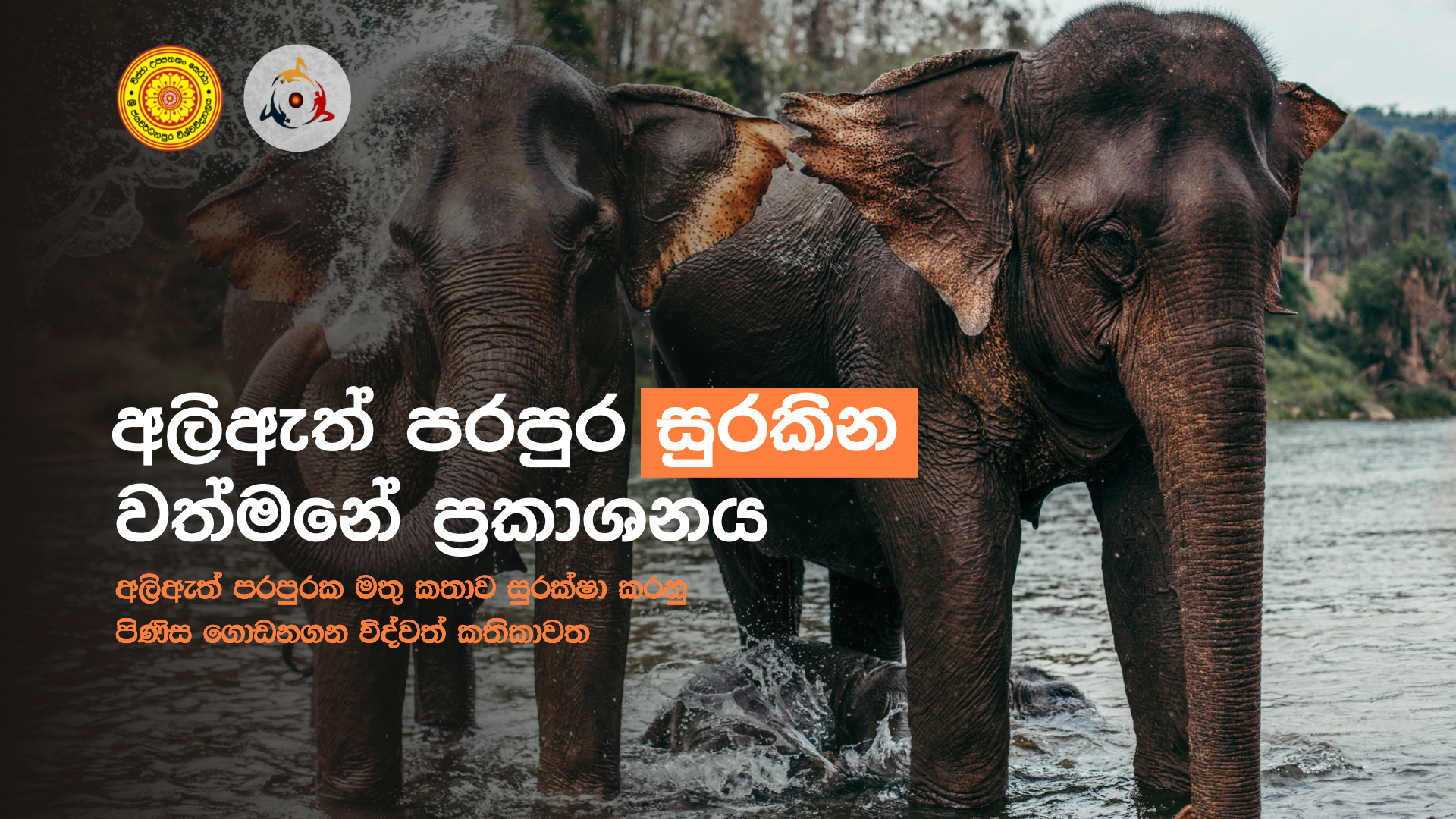Current Discourse on Elephant Conservation & Protection in Sri Lanka
Sri Lanka is a land steeped in cultural richness. Elephants play a crucial role in maintaining the balance of the island’s ecosystems. Beyond their ecological impact, the majestic presence of elephants has played an immense part in cultural significance in Sri Lanka for many generations. These majestic creatures, esteemed for their ecological and cultural significance, are at the forefront of an escalating crisis marked by violent deaths, human-elephant conflict, and illegal poaching. As conservators of the environment, the students of the Applied Sciences (Honors) Degree Program at the University of Sri Jayewardenepura have organized a crucial panel discussion on Elephant Conservation in Sri Lanka.
Elephants are deeply embedded in Sri Lanka’s cultural and religious heritage, symbolizing wisdom, strength, and prosperity. They feature prominently in traditional art, folklore, and religious ceremonies, showcasing a profound connection between the people and their natural environment. Integrated into Sri Lanka’s culture and traditions since before the Christian era, elephants are used in ceremonies and festivals as a symbol of good luck and fortune. The earliest record of elephants being used in Buddhist religious processions and festivals in Sri Lanka dates back to the 3rd century BCE. Buddhism, the predominant religion of the Sinhalese, who constitute the majority ethnic group in Sri Lanka today, holds elephants as quasi-sacred animals. Elephants also bare significant symbolic, cultural, and economic importance in Sri Lanka.
The conservation of elephants in Sri Lanka is not merely a matter of preserving a species; it is a commitment to safeguarding the country’s rich ecological tapestry and cultural identity. Efforts to protect these majestic animals extend beyond ecological considerations, reflecting a broader commitment to preserving the unique bond between the people of Sri Lanka and their natural heritage. Elephants in Sri Lanka confront thousands of challenges, with habitat loss, human-wildlife conflict, and poaching standing out as prominent threats. The improvement of human activities, including agriculture and infrastructure development, has led to the fragmentation and reduction of natural habitats, restricting the movement and exploring, feeding capabilities of elephant populations. This habitat loss, compounded by escalating human-wildlife conflicts arising from crop raids and retaliatory measures, poses a significant risk to both the human and elephant communities. Additionally, while not as widespread as in some other regions, poaching remains a concern, driven by the demand for ivory and other elephant-related products. Climate change further amplify these issues, altering the availability of resources such as water and food. Despite dedicated conservation efforts focusing on habitat protection, the creation of wildlife corridors, and measures to reduce human-elephant conflict, sustained attention is important to secure the future of elephants in Sri Lanka.
The students of the Applied Sciences (Honors) Degree Program, University of Sri Jayewardenepura have organized a panel discussion on Elephant Conservation in Sri Lanka. There has been an uprising in violent elephant deaths recently in the county, which is probably the result of human-elephant conflict and illegal poaching. Although discussions have been held in this regard, it seems that no positive steps have been taken yet. For this reason, we hope to deliver the public a good scientific explanation of the elephant in Sri Lanka, discussing their cultural environment, wild and domestic elephant resources. We also hope to discuss the regards of elephant-human conflict, misconceptions about elephants, preventing human-elephant conflict and protecting elephants as well as the human lives that are lost due to it.
The discussion is planned to take place on 24th Friday at the Botany Auditorium of the University of Sri Jayewardenepura, from 1 P.M. to 4 P.M. We hope to include the conservation measures, proposals, etc. discussed extensively in this discourse and then publish a publication called අලි ඇත් පරපුර සුරකින වත්මනේ ප්රකාශනය which will be handed over to the government.





